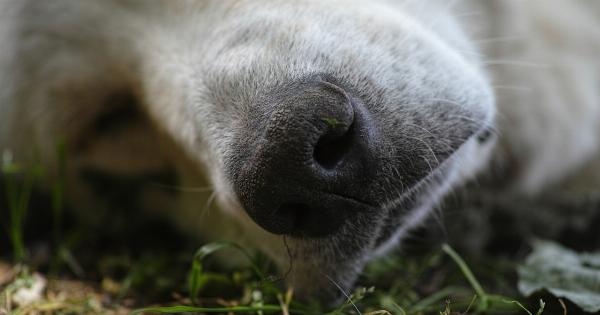Many individuals experience nasal congestion and other nasal issues during nighttime. This can cause discomfort and disrupt sleep. Several factors contribute to nighttime nasal problems.
1. Allergies
Allergies are a common cause of nighttime nasal issues. When allergens like dust mites, pet dander, or pollen enter your nasal passages, your immune system releases histamines.
Histamines cause blood vessels in the nasal lining to swell, leading to congestion and runny nose.
2. Sinusitis
Sinusitis refers to inflammation of the sinuses, usually caused by a viral infection, bacterial infection, or allergies. As the sinuses become inflamed, they produce excess mucus, leading to nasal congestion, postnasal drip, and discomfort at night.
3. Deviated Septum
A deviated septum occurs when the wall that divides the nasal cavity is crooked or off-center. This structural abnormality can impede airflow, leading to nasal congestion, especially when lying down.
It can worsen during sleep due to changes in pressure and body position.
4. Nasal Polyps
Nasal polyps are growths that develop in the lining of the nasal passages or sinuses. These noncancerous growths can obstruct the nasal passages, causing breathing difficulties and nighttime nasal issues.
They may be associated with chronic sinusitis or asthma.
5. Respiratory Infections
Respiratory infections, such as the common cold or flu, often cause nighttime nasal issues. The viruses responsible for these infections irritate the nasal lining, leading to swelling, mucus production, and congestion.
Postnasal drip may also trigger coughing and discomfort at night.
6. Dry Air
Dry air can irritate the nasal passages, causing dryness, congestion, and discomfort. During winter months or in arid climates, the lack of humidity in the air can contribute to nighttime nasal issues.
Dry air can also worsen existing conditions like allergies or sinusitis.
7. Environmental Irritants
Exposure to environmental irritants, such as smoke, strong odors, or chemical fumes, can trigger nasal congestion and irritation at night. These irritants can inflame the nasal lining, causing discomfort and interfering with normal breathing.
8. Sleep Apnea
Sleep apnea is a sleep disorder characterized by pauses in breathing or shallow breaths during sleep. It can also cause snoring and frequent awakenings.
While sleep apnea primarily affects breathing patterns, it can indirectly contribute to nighttime nasal issues due to altered airflow and pressure changes.
9. Pregnancy
Pregnant women often experience nasal congestion, especially during the second and third trimesters. Hormonal changes, increased blood flow, and swelling of the nasal lining can lead to nighttime nasal issues.
10. Medications
Certain medications, such as nasal decongestant sprays or antihistamines, can initially alleviate nasal congestion but may worsen symptoms if used for an extended period. This is known as the rebound effect.
Overuse of these medications can cause nasal issues at night.
How to Overcome Nighttime Nasal Issues
While nighttime nasal issues can be bothersome, several strategies can help alleviate symptoms and improve sleep quality. It’s essential to address the underlying cause and make necessary lifestyle modifications.
1. Maintain a Clean and Dust-Free Bedroom
To minimize exposure to allergens, dust mites, and pet dander, regularly clean your bedroom. Vacuum carpets, wash bedding in hot water, and use allergen-proof covers for pillows and mattresses.
Reduce clutter and avoid keeping stuffed animals or excessive fabrics that can collect dust.
2. Use a Humidifier
If dry air aggravates your symptoms, consider using a humidifier in your bedroom. Adding moisture to the air can help relieve nasal congestion and soothe irritated nasal passages. Opt for a cool-mist humidifier to prevent the growth of mold or bacteria.
3. Nasal Irrigation
Nasal irrigation involves rinsing the nasal passages with a saline solution. This technique helps remove excess mucus, allergens, and irritants, providing relief from nasal congestion.
Use a neti pot, nasal bulb, or saline nasal sprays for nasal irrigation.
4. Elevate Your Head
Prop your head up with an extra pillow or elevate the head of your bed slightly. This position helps reduce nasal congestion by promoting drainage and preventing the accumulation of mucus in the nasal passages.
5. Steam Inhalation
Inhaling steam can help open up the nasal passages, reduce congestion, and relieve discomfort. Fill a bowl with hot water, place a towel over your head, and lean over the bowl to inhale the steam. Be cautious with extremely hot water to avoid burns.
6. Avoid Allergen Exposure
If allergies trigger your nighttime nasal issues, take steps to minimize exposure to allergens. Keep windows closed during high pollen seasons, use allergy-proof covers for bedding, and avoid outdoor activities when pollen counts are high.
7. Determine Food Sensitivities
Some individuals may experience nasal issues at night due to food sensitivities. If you suspect certain foods worsen your symptoms, consult with a healthcare professional and consider an elimination diet.
Identifying and eliminating trigger foods can help alleviate nasal congestion.
8. Seek Medical Treatment
If home remedies and lifestyle changes do not provide relief, it is essential to consult a healthcare professional. They can identify the underlying cause of your nighttime nasal issues and offer appropriate medical treatment.
This may include prescription medications, allergy shots, or surgical interventions if necessary.
9. Avoid Nasal Irritants
Avoid exposure to nasal irritants, such as smoke, strong odors, or chemical fumes. These irritants can worsen nasal congestion and contribute to discomfort at night. Take necessary precautions and choose well-ventilated areas when possible.
10. Practice Good Sleep Hygiene
Establishing good sleep hygiene habits can contribute to overall sleep quality and reduce nasal issues at night.
Maintain a consistent sleep schedule, create a comfortable sleep environment, limit screen time before bed, and engage in relaxation techniques to promote restful sleep.






























